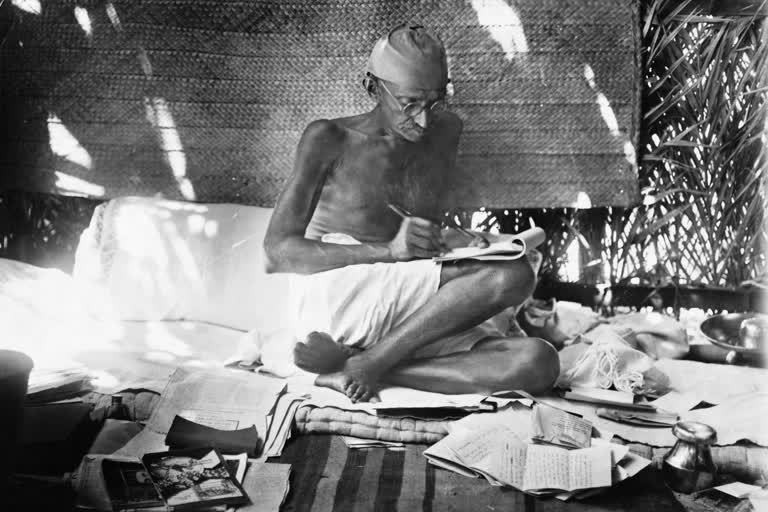Hyderabad: "I claim to be a practical idealist," Mahatma Gandhi once said. Explaining how life and its problems taught him many lessons, Gandhiji dismissed any claim of having discovered a new philosophy or message for humankind. "I have nothing new to teach the world," he declared, "truth and non-violence are as old as the hills."
In his tireless pursuit of truth, he learnt from his experiments and errors as well. Truth and non-violence constituted the main tenets of his philosophy. But in a discussion with a Jain seer, Gandhiji admitted that by instinct he was truthful but not non-violent. "I have been truthful but not non-violent. There is no dharma higher than truth. Ahimsa is the highest duty," the Mahatma said.
Cautioning his disciples and followers against making an attempt to promote 'Gandhism' and publicising his ideas, Gandhiji said: "There is no such thing as Gandhism. I do not want to leave any sect after me."
Nor was there any need to promote Gandhian ideals through propaganda. "No literature or propaganda is needed about it. Those who believe in the simple truths I have laid down can propagate them by living them. Right action contains its own propaganda and needs no other," he explained.
As Ronald Duncan put it, Gandhiji was the most practical man who would always drive any thought to its personal implication and practical application.
Satyagraha or Sarvodaya, truth or ahimsa —- every ideal he set for himself was first tested in the laboratory of his mind. Science was as important for him as religion. There was no conflict between them. His spirituality synthesized science, religion and philosophy.
If Satyagraha ennobles the human spirit, Sarvodaya brings all people—the rich and the poor, the employer and the employee, the tallest and the lowest - together 'in the silken net of love.'
The need is to control the root of all problems - the human mind. "The mind," wrote Gandhiji, "is a restless bird; the more it gets, the more it wants and still remains unsatisfied." A simple yet meaningful life is possible only when the mind is tranquil. Restraint holds the key to human development. Highest perfection is unattainable without highest restraint, he stated.
Explaining the meaning of selfless action, the Mahatma quoted from the Gita and said: "The sages say that renunciation means foregoing an action which springs from desire and relinquishing means the surrender of its fruit."
